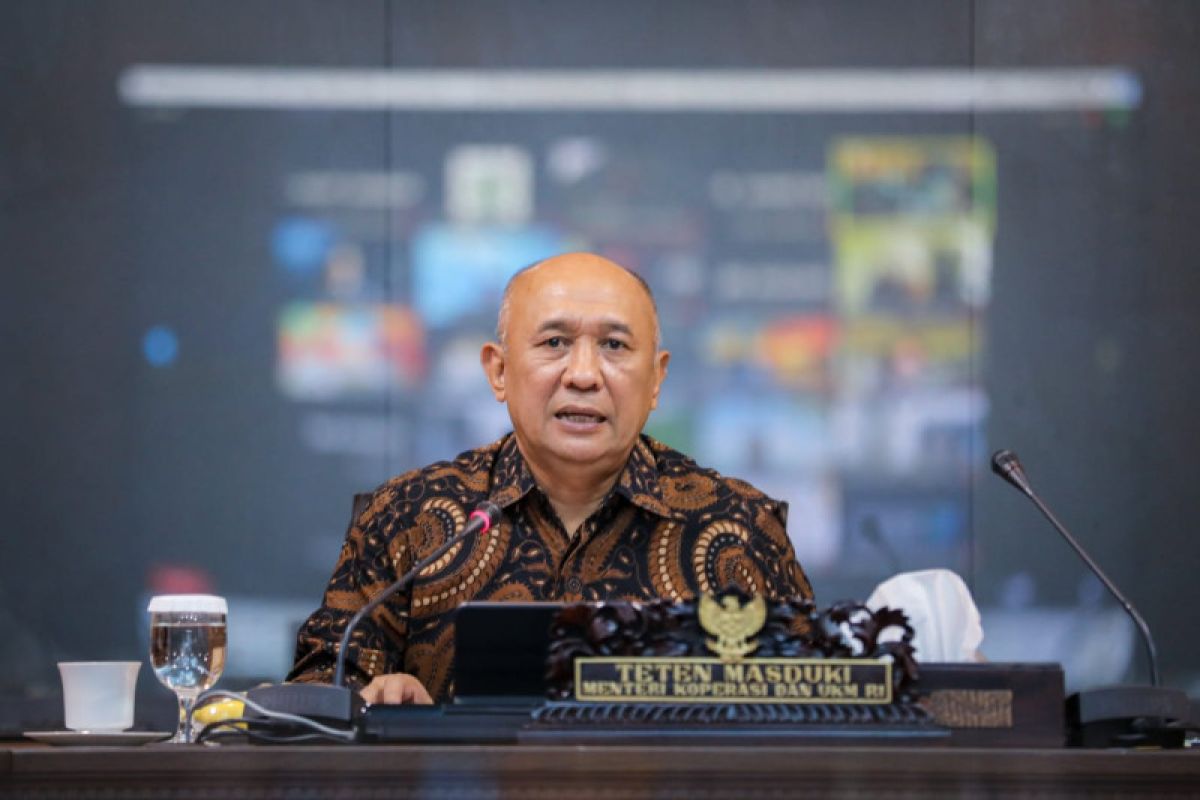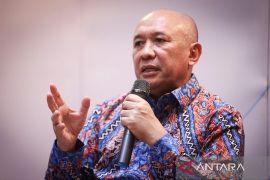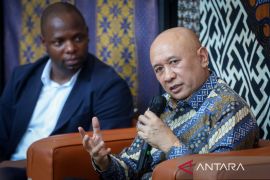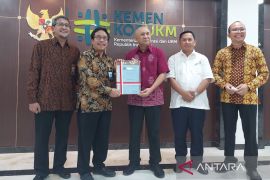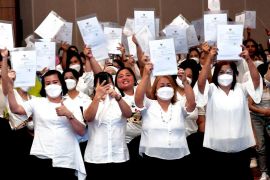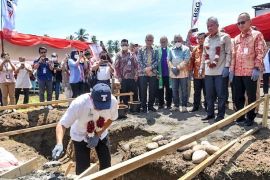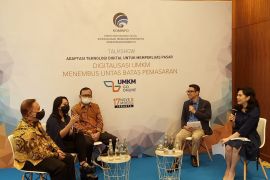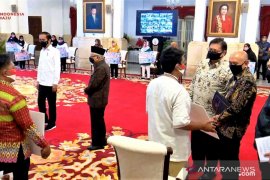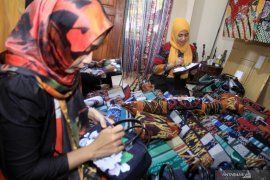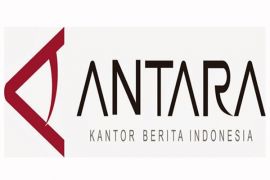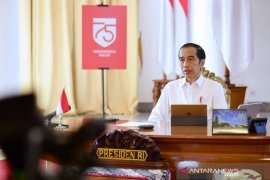Incentives given to entrepreneurs are in the form of reduction, relief, and/or exemption from regional taxes and regional levies, interest subsidies for loans on government program loans, and/or income tax facilitiesJakarta (ANTARA) - Presidential Regulation (Perpres) Number 2 of 2022 on National Entrepreneurship Development for 2021-2024 is crucial to boost the number of entrepreneurs in Indonesia, Cooperatives and Micro, Small, and Medium Enterprises (MSMEs) Minister Teten Masduki stated.
To strengthen the structure of the national economy, the government targets to increase the entrepreneurship percentage in 2024 to reach 3.95 percent, which currently still stands at 3.47 percent.
"This Perpres provided convenience, incentives, and recovery for entrepreneurs, both who had started their business or those who were just starting out," Masduki noted in a press statement on Sunday.
These facilities in Perpres comprised electronic licensing registration, facilitating domestic and export standardization and certification as well as access to financing in addition to prioritizing the procurement of government goods and services and access to the digital market for State-Owned Enterprises (PaDi BUMN).
In addition, entrepreneurs can have easy access to raw materials and/or auxiliary materials.
Related news: SMEs Ministry to support village project for Mt. Semeru victims
The Perpres also regulates entrepreneurs to have access to public facilities including commercial area land, shopping areas, and/or strategic promotion places on public infrastructure in accordance with the provisions of laws and regulations, conduct research and business development, and gain access to increasing business capacity through mentoring, education and training, and technical guidance.
"Incentives given to entrepreneurs are in the form of reduction, relief, and/or exemption from regional taxes and regional levies, interest subsidies for loans on government program loans, and/or income tax facilities," he remarked.
In an effort to recover from Force Majeure or disaster, ministries/institutions and local governments seek entrepreneurial recovery that comprised credit restructuring, business reconstruction, capital assistance, and/or other forms of assistance.
The disaster is not only a natural disaster but also other disasters determined by the competent authority.
Related news: KSP assists BPJPH in halal certification for 10 million MSMEs
In addition, the Presidential Regulation mandates the establishment of a National Entrepreneurship Development Committee that is answerable to the president.
The Executive Committee is chaired by Masduki, with State-Owned Enterprises (SOEs) Minister Erick Thohir, Minister of Tourism and Creative Economy Sandiaga Uno, and Minister of Home Affairs Tito Karnavian as deputy chairmen that cover 20 ministries and agencies.
"The committee will formulate strategic policy recommendations to the president and coordinate and synchronize the development of national entrepreneurship," Masduki explained.
Furthermore, this committee will prepare a national entrepreneurship development document and a national entrepreneurship development action plan.
Related news: MSMEs must have greater access to funding: Widodo
The Presidential Regulation also emphasizes funding for entrepreneurship development originating from the State Budget (APBN), Regional Budget (APBD), and other sources in accordance with provisions of the legislation.
Funding for the implementation of national entrepreneurship development in the regions from APBN is allocated through the Special Allocation Fund (DAK) in the form of physical DAK and non-physical DAK.
The DAK is used to increase entrepreneurial capacity through incubation, enhance the quality of mentors, and expand market access.
Related news: Suroboyo Bridge to be utilized for MSMEs
Related news: Ministry to expedite metallurgical coal exploration
As was earlier known, the Presidential Regulation was officially enacted on January 3, 2022, which will serve as a guideline for ministries and agencies, local governments, and stakeholders in developing national entrepreneurship for the 2021-2024 period. (INE)
Close
EDITED BY INE
Translator: M Baqir I A, Resinta Sulistiya
Editor: Fardah Assegaf
Copyright © ANTARA 2022
